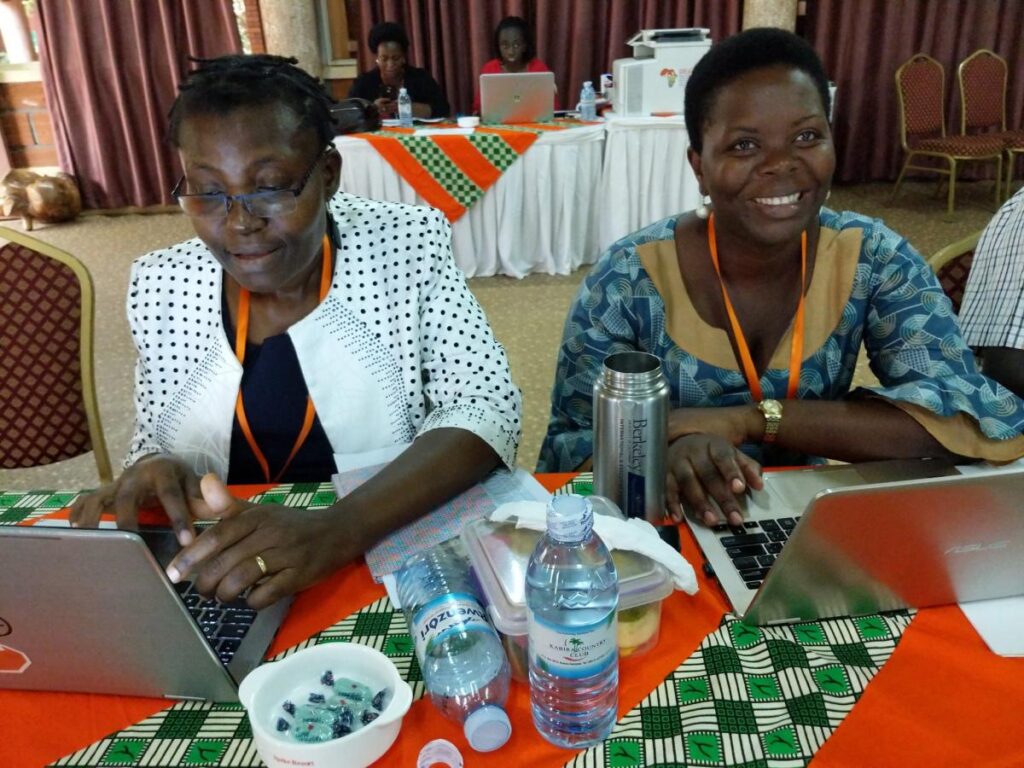By: Peace Musiimenta, GREAT Trainer and Lecturer, School of Women and Gender Studies, Makerere University
This is a reflection on my experience with Great Responsive Researchers Equipped for Agricultural Transformation (GREAT) during a tailored Course for Tropical Legumes Breeding III (TLIII) held on 26th November-1st December, 2018. This exciting training attracted both biophysical and social scientist researchers from Burkina Faso, Ethiopia, Ghana, Mali, Malawi, Nigeria, Tanzania and Uganda. At the beginning of the course, some of the participants expressed the attitude that gender and qualitative research methods don’t matter in their discipline. I could read from the participants’ faces questions like ‘is gender a science that can influence breeding activities?’ ‘How can gender be understood as a science not just as a social practice?’ To them, gender appeared to have little to do with breeding /biophysical scientific research methods. Surprisingly, some of these comments were even coming from professors with 10 to 40 years of experience using participatory breeding methods and quantitative approaches in the field.

GREAT trainer Peace Musiimenta (left) and Brenda Boonabaana prepare for delivering a session on qualitative data analysis at the GREAT legumes course, January 2019.
Yet despite the initial skepticism, I witnessed an instant transformation when the theory of gender as a science was presented by Prof. Grace Bantebya. Breeders also appreciated sessions that presented qualitative gender research (by Dr. Brenda Boonabaana and Dr.Peace Musiimenta) and mixed methods (by Dr. Miiro Richard and Prof. Mangheni Margaret).
Informal interactions with breeders and social economists attending the training revealed that the course turned round their negative perceptions about qualitative research and gender to a feeling that the qualitative research process is exciting though hectic, relative to the conventional quantitative approaches. There was realisation that perhaps the low adoption of newly introduced legume varieties could be attributed to failure to rigorously interrogate the qualitative ‘why’ and ‘how’ questions during breeding process. Participants confessed that previously, qualitative research was done without rigour. “We used to conduct qualitative research haphazardly, we did not know how to use the qualitative data,” as one participant explained.
This demonstrates powerful learning. Breeders’ perceptions of qualitative interviewing as idle conversation engaged in with the respondent about anything before getting down to the “real” business of posing specific survey questions was challenged by the practicalsession on how to conduct a focus group discussion (FGD). Most participants shared how qualitative interviewing was interesting given that it enables the respondents to tell their story and share personal experiences that explain their behaviours, choices and decisions. While there was a feeling of “what do we do with the stories,” the trainers explained these stories are not analyzed as statistical data but interpreted to understand the issues behind statistics to explain men and women’s realities.
The breeders’ acknowledgement of their vulnerability as breeding for a gender blind clientele that does not exist in reality, made them conclude that they will not fully achieve their goals unless their clientele of women and men are on equal footing. With this in mind, both women and men will be able to access the new varieties unconstrained. There was consensus that qualitative gender research fits into the breeding segments as it focuses on identifying the real social problems that may affect adoption of new legume varieties. Accordingly, such underlying or unexplained social problems may not be easily identified through conventional research approaches and this would necessitate to continuously train scientists in sub-saharan Africa with gender skills and tools to foster gender equitable breeding outcomes.





